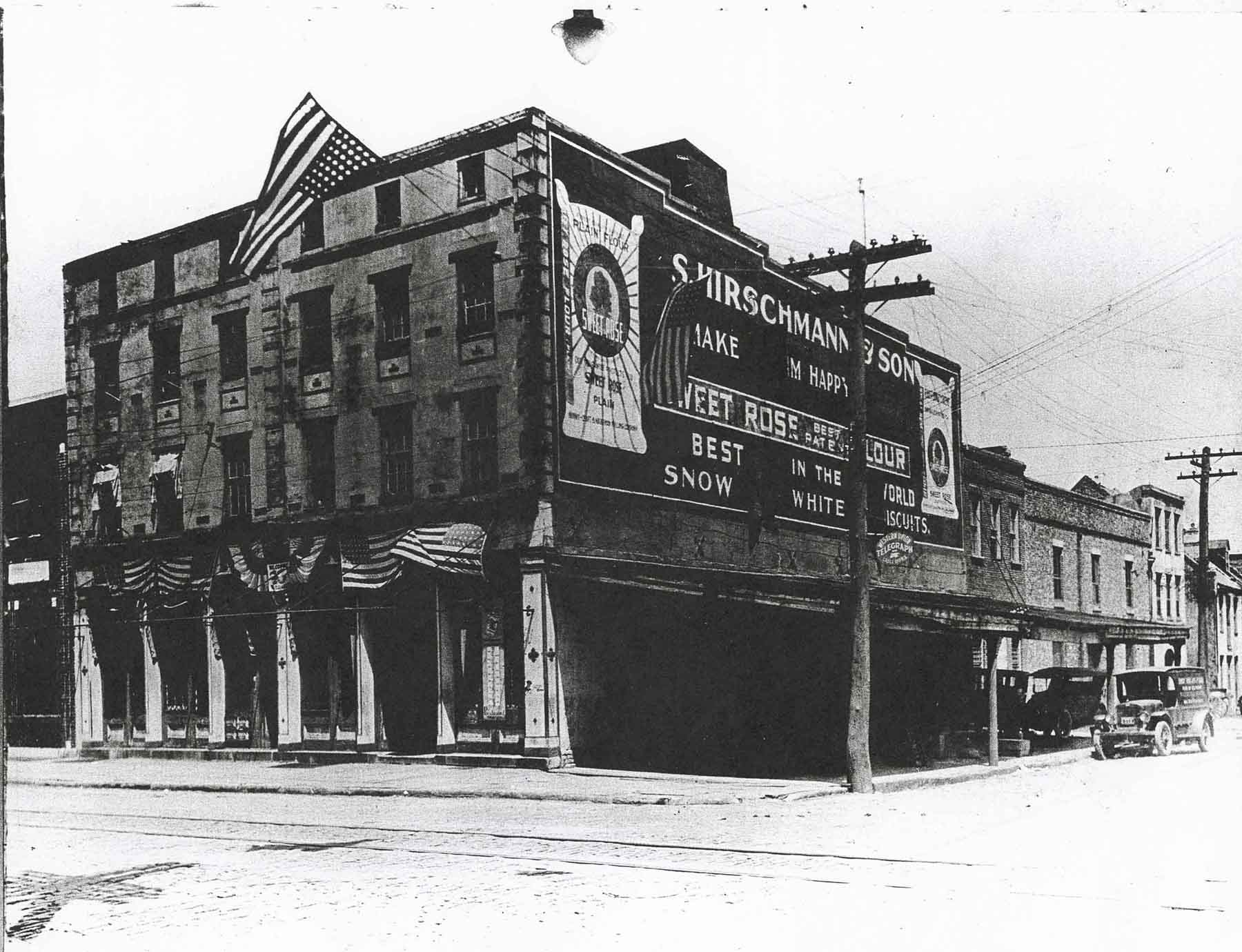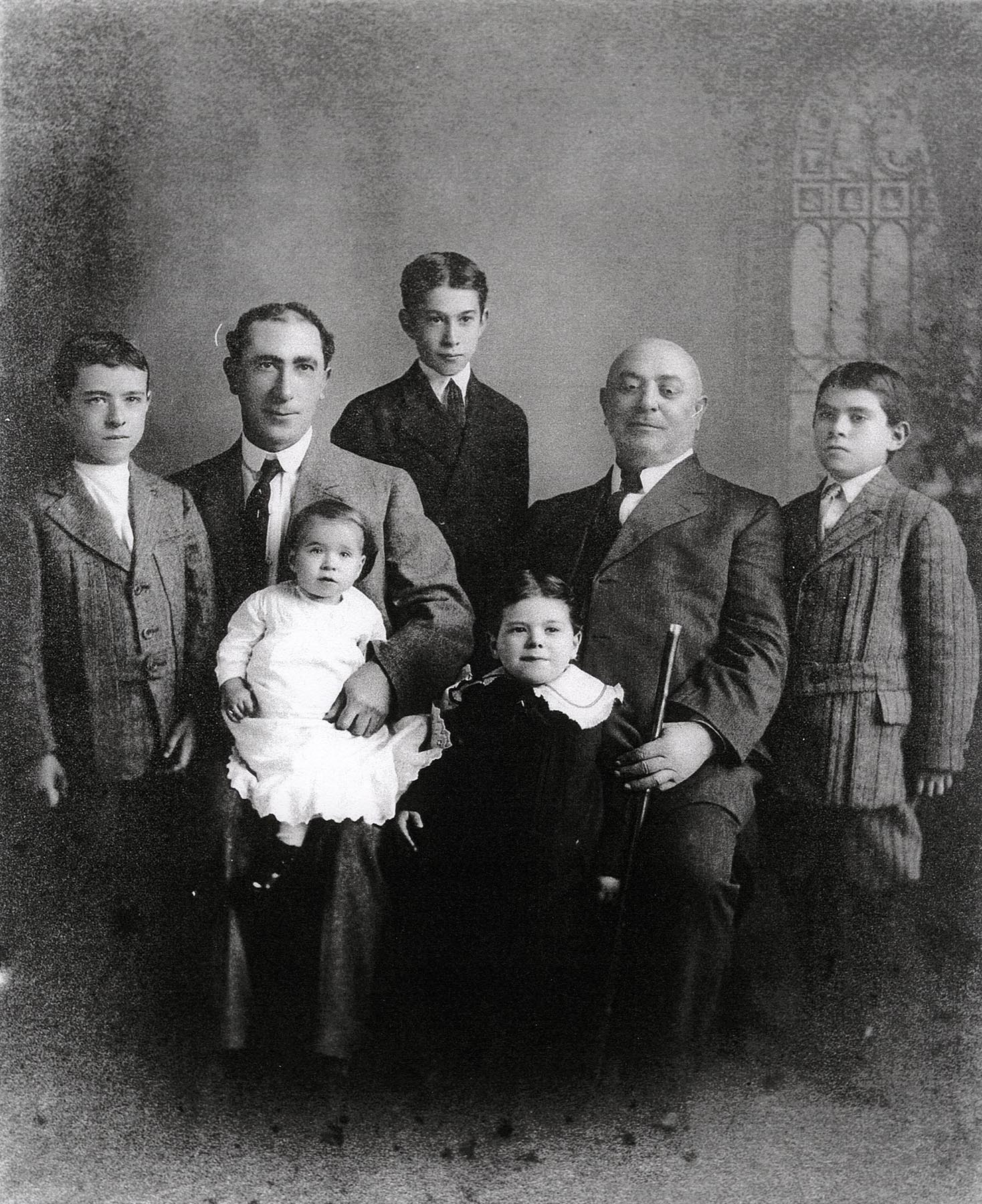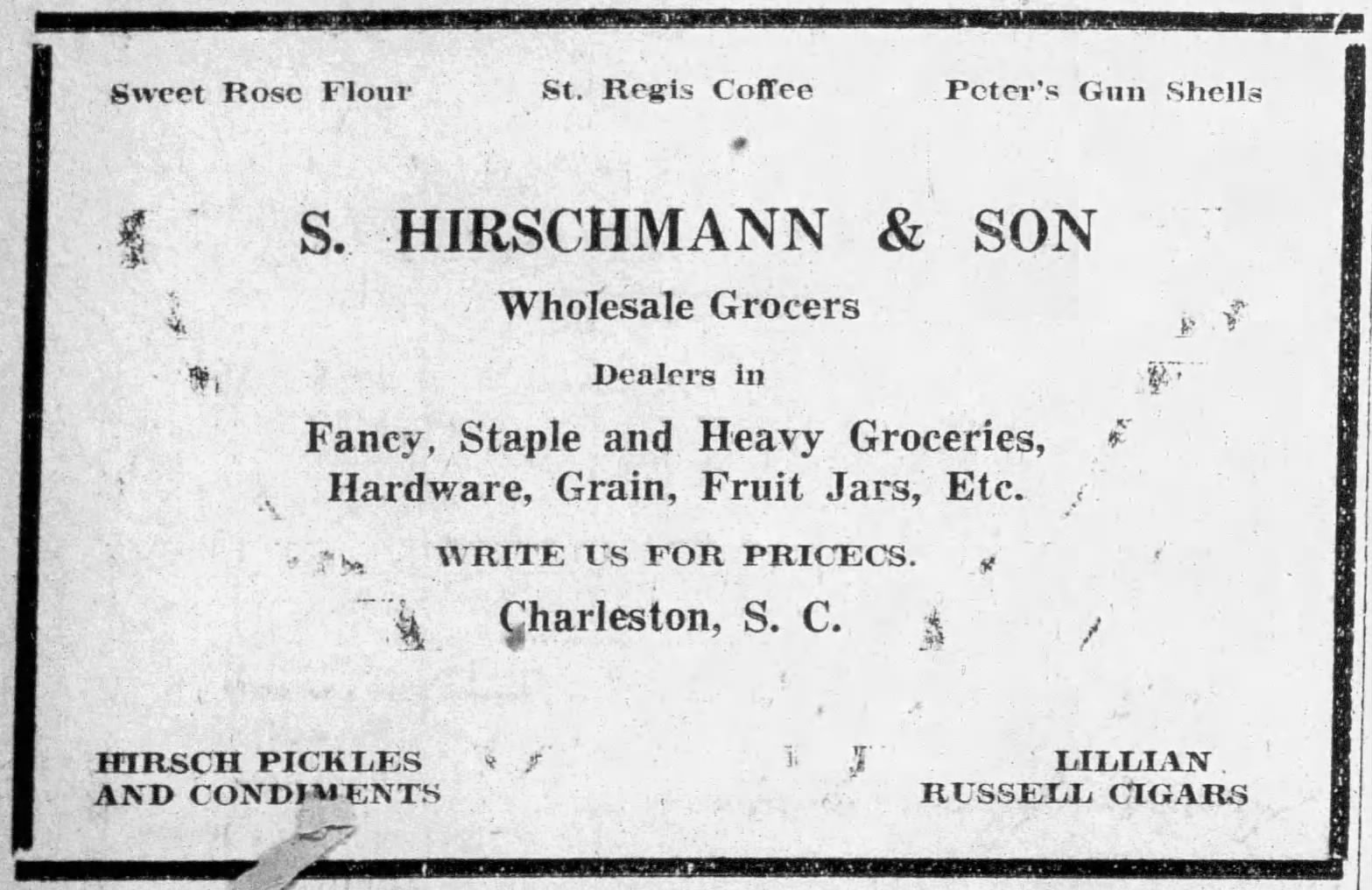
S. Hirschmann & Son
Grocery
1895-c.1935
East Bay Street
Charleston, SC 29401
FAMILIES: Hirschmann
Born in Austria, Solomon Hirschmann (1850-1922) immigrated to the United States around 1869. Two years later, he and his wife Lena (1845-1890) were recorded living in South Carolina where they welcomed their eldest child, Katherine (1871-1951). Over the next several years, the growing Hirschmann family moved about the Palmetto State. According to their death certificates, the Hirschmann’s next two children—Henry (1873-1925) and Rosa (1875-1935)—were born in Cades and Camden respectively, while the couple’s last two children—Joseph (1879-1926) and Mary Cecil (1885-1962)—were both said to be born in Charleston.
While it is possible that the Hirschmanns were living in Charleston in the late 1870s, Solomon’s name does not appear in the Charleston city directory until 1886—at which time he was listed as a peddler. Within five years, Solomon opened a wholesale grocery store in his name on East Bay Street and, unfortunately, began mourning the loss of his wife Lena in 1890. Around 1894, he married Frances Lesser (1861-1914) and then renamed his business S. Hirschmann & Son in 1895. As the name implies, Solomon operated the wholesale business—located at 168 East Bay Street—with his eldest son, Henry.
Starting as a clerk at S. Hirschmann & Son, Solomon’s youngest son Joseph later worked as a traveling salesman, first in association with the family business and later in his own right. As Solomon grew his business with his sons, he also celebrated momentous occasions in his daughters’ lives—first with the birth of his youngest Theodora in 1899 and then with Rosa as she became the first woman to graduate from the Medical College of South Carolina in 1900.
As the years progressed, Solomon’s eyesight grew weak, and Henry began to take an increasingly active role in the company. In the 1920s, he began placing advertisements in the local newspaper that highlighted their stock of “fancy, staple, and heavy groceries,” as well as cigars, gun shells, coffee, and hardware.1 With the arrival of the boll weevil in 1921, he also placed an advertisement suggesting that black strap molasses mixed with calcium arsenate would kill the invading menace—a popular idea that ultimately conflicted with US Department of Agriculture’s plan to address the infestation.
When Solomon died the following year, South Carolina’s agricultural system was left in ruins. However, his business lived on under Henry’s management, and then after Henry’s death in 1925, under the watchful care of Henry’s widow Rosa Sternberger Hirschmann (1876-1945) and their sons Edgar (1901-1975) and Lionel (1902-1970). The store ultimately closed in the mid- to late-1930s.
1 “S. Hirschmann & Son,” Item, May 17, 1921, 7.
Main Image: S. Hirschmann & Son, c.1924. Image courtesy of the South Carolina Historical Society.

Above Image: Photo of the Hirschmann family with Henry seated on the left and Solomon on the right. They are surrounded by Henry’s children, who are, from left to right: Lionel, Victor, Joseph, Jerold, and Edgar. Image courtesy of Special Collections, College of Charleston Libraries.

Above Image: Advertisement for S. Hirschmann & Son. Reprinted from The Item, May 17, 1921.